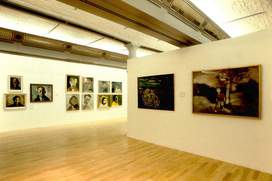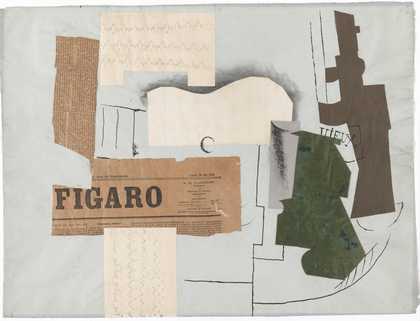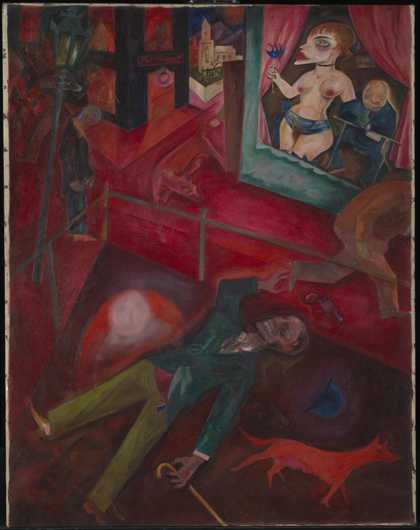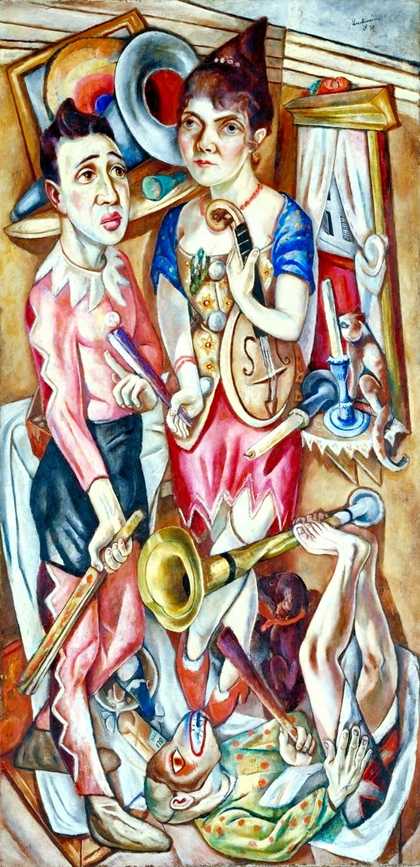
Angry Penguins installation view, Tate Liverpool, 1988
We can see the works in this exhibition as representative of two ambitions - showing Australia, either as a mythical and romantic country of freedom (Nolan's Ned Kelly series) or making apparent the real and ugly parts of the urban environment, and, secondly, the employment of modernist principles in making works of art. Sometimes the artists (generally the Realist painters) do not express a conscious modernism in order to exemplify their political position. Sometimes (as in Albert Tucker's case) the dislocations and devices of Modernism heighten the anguished political statement. The Images of Modern Evil are about the poor suburbs of Melbourne during the months that the American Fleet under MacArthur was stationed there. Tucker reports in these paintings sexual encounters between teenage girls, part-time prostitutes, and the American Forces. The young girls wore the Stars and Stripes as skirts to attract the sailors and Tucker constructs modern paintings using this device as well as grotesque symbols for female sexuality drawn from artists such as Picasso, Grosz, Beckmann and Dix. Tucker develops from the violently coloured expressive paintings of 1941 such as Pick-up to a view that synthesises the expressive and the prevailing language of modern painting. These are angry paintings which despise the violence that they depict and at the same time are distillations of the act of painting.
They differ from the work of Counihan, Bergner and O'Connor whose political commitments and views of the history of art lead them to a much more straightforward depiction of the injustices of their society. They appear to be representational artists but, as Bernard Smith points out in the catalogue, their realism meant that what they succeeded in doing brilliantly was
'to delve into their own inner feelings and experience and create works that would stand as a witness to those times.'
Their subjects were the views of the dispossessed races, particularly the Jews and Aborigines, and the extreme poverty of the working class Irish. Their views became an indissoluble part of the arguments debated at the Contemporary Art Society and the realists suffered the slur of association with Stalinism as a result. They are a most important group in the history of the depiction of Australia and have been underestimated by many historians.
Angry Penguins is the title of a magazine created in Adelaide and later Melbourne in the 1940s by the poet Max Harris and Sydney Nolan working with the inspired guidance of John and Sunday Reed. John Reed, a solicitor, espoused the radical and avant-garde arts in Melbourne.



